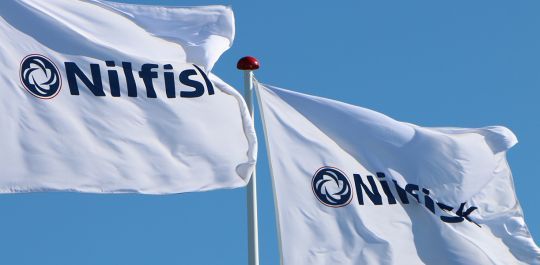Business need
Freeing up valuable time
Automatic handling of expense invoices is one of the enterprise
advantages of the shared service center in the accounts payable
operation of the giant retailer JYSK. The solution behind “e-invoicing”
is called MAKIRA Approve. The SAP partner is NTT DATA Business
Solutions (NTT DATA).
The accounts payable operation for Denmark, Sweden, Norway and
The Netherlands at JYSK is handled by a team of six people. The
number of employees within the operation has decreased over the
last four years, although the number of managed JYSK retail shops
has increased by 70 to 343 within this time. Within the last four years,
the accounts payable team in Brabrand has become a shared service
centre for four countries.
Despite the large growth in the number of transactions, the team is
committing fewer resources than ever before. One of the reasons is
the development of “e-invoicing” which means automated handling
of invoices, e.g. for freight, office accessories, tradesmen, alarms,
newspapers and much more, for the shops across the four countries.
JYSK developed their system together with their SAP partner, NTT DATA,
who are now selling it as the SAP module MAKIRA Approve.
Solution
A good partnership
The rationale behind shared service and e-invoicing is ‘enterprise advantage’, says Uffe Christensen, Financial Manager at JYSK. “Without the IT support, we would not have been able to handle this number of transactions. The benefit lies in the automation and streamlining of the whole invoicing process. E-invoicing contains a workflow system, which means that the invoice is automatically forwarded to the right person for approval, and that it is recorded and entered correctly into accounts. Now everyone within our organisation has much more information about invoices and expenses.”
Christensen adds, “The consultants from NTT DATA are both competent and pleasant to work with. Their professionalism has been a key factor in the good results we have achieved. The process was not simply a matter of sorting out the IT project and the SAP technology. It took quite some time to change our own behaviour and convince our suppliers to follow, and we can still improve and reap more benefits.”
Together with the Executive Financial Manager of JYSK Nordic, Christensen created the idea of a shared service centre and electronic invoice management. The need was to optimise the financial operation in the wage-intensive European countries handling a large number of transactions. The solution has now been running for its third year successfully with strong results.
Self service
More than 100 people across the four JYSK countries have a budget responsibility for this type of expense handling. A lot of time was previously spent on finding printed appendices and these are now in an electronic format. As a result, the person with budget responsibility can locate the correct appendices, meaning shorter reaction times, better knowledge and fewer errors.
We are saving a lot of money due to higher transparency. The initiator of an activity can quickly get an overview of the invoices related to it. The path from invoice to action is now short, and the financial department is no longer a bottleneck. The people responsible for budgets can now operate on a self-service basis, says Uffe Christensen.
E-invoicing at JYSK – and MAKIRA Approve – controls the necessary business processes related to purchase orders and invoices. Once the document has been digitalised – whether the supplier provides the invoice in an electronic format or JYSK convert a printed invoice into an e-invoice – the solution can handle every workflow.
If possible, the solution automatically applies bookkeeping information based on the invoice data. Furthermore, Christensen’s system is based on SAP’s workflow engine, allowing for significant extension and customisation.
Outcomes
On the road to 90 percent
For Denmark, we are now handling 70 percent of about 25,000 annual invoices electronically. The Netherlands is at the same level, while Sweden and Norway are at 30 percent. We are working hard to raise the percentage, because our savings in cost and time grow along with it. Otherwise, we have to scan the invoices ourselves – and that’s a pain, says Christensen, who estimates that JYSK can reach a target of 90 percent of invoices received electronically.
The investment made in structuring the whole process around invoices is offset faster in countries with a large number of invoices as well as high wage costs, due to growing savings in “manual” labor within the financial operation.






